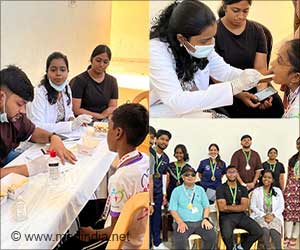
‘Making policy changes can help save thousands of kidneys that are being discarded.’
Tweet it Now
The findings come from a study appearing in an upcoming issue of the Clinical Journal of the American Society of Nephrology (CJASN).
Unfortunately, because of a shortage of available kidneys, there is a long waitlist to receive a transplant, and approximately 5000 patients in the Unites States die each year waiting for a kidney transplant. Despite this shortage, almost 1 out of every 5 kidneys that are recovered from possible donors ends up being discarded a proportion that has risen over the past decade.
To understand why these kidneys are not being used, with the goal of improving kidney utilization, reducing wait times, and providing transplants to more patients, a team led by Sumit Mohan, MD, MPH and S. Ali Husain, MD, MPH (Columbia University Medical Center) analyzed information on deceased donors from whom both kidneys were procured but only one was transplanted from 2000-2015.
"It is obviously impossible to tell with certainty what would have happened to any discarded kidney if it had been used instead. As a result, it has been difficult to categorize these discards as 'appropriate' or 'inappropriate.'
We therefore aimed to identify kidney donors from whom 1 kidney was used but the partner kidney in the pair was discarded," Dr. Mohan explained." By doing so, we could control for donor characteristics to better understand the reasons for discard, and whether concerns about using certain kidneys were justified."
Advertisement
"We therefore concluded that many of these discarded kidneys were in fact quite usable, and that systems-level changes are needed to encourage better utilization of this valuable but scarce resource," said Dr. Husain.
Advertisement
"The current discard of kidneys would be hard to explain to the families of deceased donors and is a disservice to the thousands of older age and diabetic wait-listed patients who would benefit from transplantation with these higher risk kidneys and who have consented to receive them," they wrote.
Source-Eurekalert










